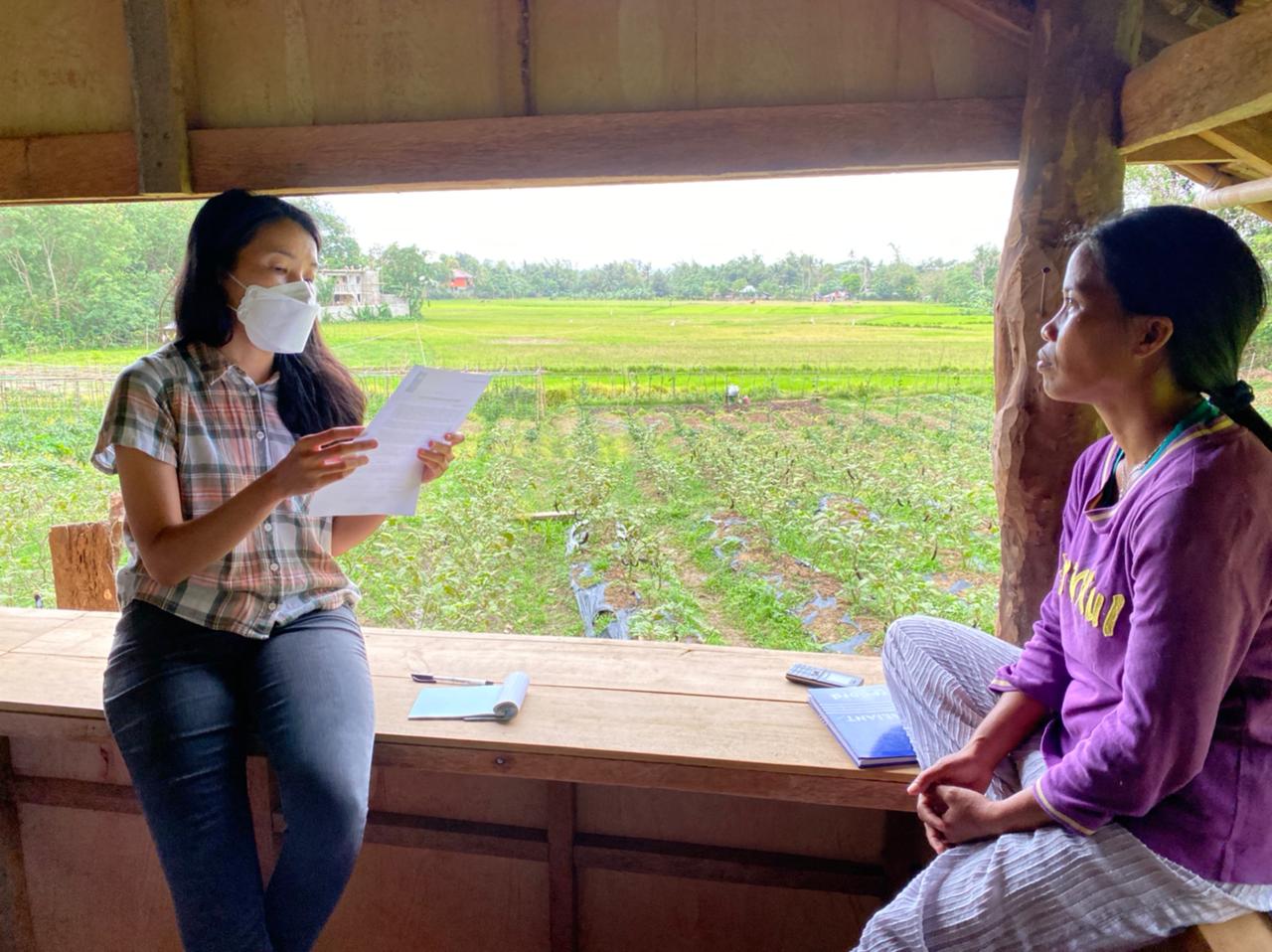Disclaimer:
Please be aware that the content herein has not been peer reviewed. It consists of personal reflections, insights, and learnings of the contributor(s). It may not be exhaustive, nor does it aim to be authoritative knowledge.
Title
Please provide a name for your action learning plan.
#NextGen Value Chains: Inclusive Food System in Boracay
Challenge statement
Challenge type: If you are working on multiple challenges, please indicate if this is your "big bet" or "exploratory" challenge.
Please note: we ask you to only submit a maximum of 3 challenges - 1x Big Bet, 2x Exploratory. Each challenge must be submitted individually.
BIG BET
Challenge statement: What is your challenge? (Please answer in specific terms: "Our challenge is that...”.)
How can an island tourist paradise that has succumbed to recent shocks rise again but in a more sustainable and inclusive way through a resilient food system?
Background: What is the history of your challenge? What is causing or driving it? Who is involved? How does the current situation look like? What undesired effects does it produce?
The 2021 UNSG Food Systems Summit posits that addressing the food systems can pave the way for the attainment of all SDGs. It is in this context that Accelerator Lab has responded to the invitation of the Local Government of Malay to collaborate on the issue of food security and livelihood resilience. Malay is home to Boracay Island, a famous white sand beach that placed second in the world’s best beaches (Condé Nast Traveler, 2021) and a top destination for local and international tourists. The tourism industry catapulted Malay into becoming a 1st class municipality, with annual income before the pandemic averaging at PHP 90 million (USD 1.8 million), most of which is attributed to the tourism industry. Even though it is a small island, tourism in Boracay is an extensive economic driver that moves and benefits other industries within Aklan and in other regions and provinces of the country. In the food systems context, Boracay pulls in food from different parts of the country to serve the businesses and tourists on the island depicting an already established value chain that benefits the active participants in it. However, Malay’s dependence on a single economy became a vulnerability to shocks. The rehabilitation in 2018 and the COVID-19 pandemic have displaced the tourism businesses and labor force. Anecdotal pieces of evidence showed trends that agriculture became a backup plan for tourism workers so they can still grow food even without work. Local governments are implementing ways for the inclusion of local food producers to participate in the Boracay economy. While businesses are getting back on their feet, they are finding ways to shorten their value chains and help Malay producers in the process.
Quantitative evidence: What (official) data sources do you have on this challenge that better exemplifies the importance and urgency of this frontier challenge? You can add text, a link, or a picture.
Data accessed by ALab from the municipal and provincial agricultural offices as well as the Department of Agriculture confirm testimony that (a) food demand sharply fell between 2019 and 2020 or before and during the pandemic; (b) local production is insufficient to meet food demand.
Qualitative evidence: What weak signals have you recently spotted that characterizes its urgency? Please provide qualitative information that better exemplifies the importance and urgency of this frontier challenge. You can add text, a link, or a picture.
Value proposition: What added value or unique value proposition is your Accelerator Lab bringing to solving this challenge? Why is it your Lab that needs to work on this challenge and not other actors within UNDP, other stakeholders in the country respectively? Why is it worth investing resources to this challenge?
UNDP itself might not be top of mind when it comes to food. The challenge, however, goes beyond agricultural production: it also pertains to markets and how these can be made inclusive, to consumer demand and how their tastes and preferences can be shifted towards sustainability, and to institutions' ability facilitate convergent governance. ALab PH not only taps UNDP's strengths in governance and civic engagement but also brings in tools that facilitate systemic change through collaborative means.
Short “tweet” summary: We would like to tweet what you are working on, can you summarize your challenge in a maximum of 280 characters?
Can sustainable food redefine tourism in the new normal? In the island paradise of Boracay, UNDP Accelerator Lab Philippines is working with local government and stakeholders to co-create an inclusive food system that benefits ordinary farmers, vendors, and small businesses.
Partners
Who are your top 5 partners for this challenge? Please submit from MOST to LEAST important and state Name, Sector and a brief description of the (intended) collaboration.
Please state the name of the Parter:
Municipal Government of Malay, Aklan
What sector does our partner belong to?
Government (&related)
Please provide a brief description of the collaboration.
The Malay LGU administers Boracay Island and is the one which has sought UNDP's support in addressing the challenge. Relevant departments: Office of the Municipal Mayor, Municipal Agriculture Office, Municipal Economic Enterprise Department, Municipal Cooperative Development, Municipal Tourism Office.
Is this a new and unusual partner for UNDP?
Yes
Who are your top 5 partners for this challenge? Please submit from MOST to LEAST important and state Name, Sector and a brief description of the (intended) collaboration.
Please state the name of the Parter:
Provincial Government of Aklan
What sector does our partner belong to?
Government (&related)
Please provide a brief description of the collaboration.
Under the Philippine government structure, the Provincial Government of Aklan oversees the Malay LGU and ensures cross-municipality linkages. The Accelerator Lab works specifically with the Provincial Agriculture Office
Is this a new and unusual partner for UNDP?
Yes
Learning questions
Learning question: What is your learning question for this challenge? What do you need to know or understand to work on your challenge statement?
The overall learning question looks at how Boracay might serve as a model for sustainable tourism and food security through inclusive value chains where local actors could meaningfully participate and benefit. Specifically: - How might we transform the local food systems of Boracay so it becomes a sustainable and inclusive means for economic recovery and resilience for the country’s top tourist destination? - What economic, socio-cultural, and technological models can strengthen collaboration among multiple stakeholders to achieve robust and responsive food systems that cater to all? - What innovative solutions can be experimented for Malay, which has limited land and water resource for food production, that can be replicated scaled to other areas with similar context? - How can technology and data play a role in enabling an inclusive local food systems? What added value can technology and data provide for local governance of food?
To what stage(s) in the learning cycle does your learning question relate?
Sense, Explore, Test
Usage of methods: Relating to your choice above, how will you use your methods & tools for this learning question? What value do these add in answering your learning question?
All of these tools were used cohesively under ther framework of Systemic Design. Ethnography and data visualization were used to understand the food system in Boracay from the available data and through the lens of key personas in the system. Based on the insights from the tools, key stakheholders from government, private sector, and civil society were engaged in a participatory process to make sense of the food system, envision changes that need to be made, and co-design and co-implement a portfolio of options.
Existing data gaps: Relating to your choice above, what existing gaps in data or information do these new sources of data addressing? What value do these add in answering your learning question?
The main data gap is the quality and timeliness of food supply and demand in Boracay--including the value and volume of "imports" into the island--and thus strengthening supply and demand data has become a key feature of the Malay food system portfolio
Closing
Early leads to grow: Think about the possible grow phase for this challenge - who might benefit from your work on this challenge or who might be the champions in your country that you should inform or collaborate with early on to help you grow this challenge?
Can local farmers supply at least 10% of the demand for key crops? The Lab’s work hopes to benefit the local food producers who currently do not have access to the Boracay market and are also challenged with scarce land and water resources affecting their production. Food producers in Malay have small landholdings that averages at half a hectare or 5,000 square meters. Preferred crops are currently rice, coconut, sweet potato, among others, which are either allocated for consumption or for selling to local markets and traders. This presents a missed opportunity for local food producers to enter the Boracay market, where prices are high as food products are imported from further parts of the country. Boracay is just one of the island tourist destinations in the Philippines that need to "imports" its food and whose vulnerable sectors are precariously dependent on tourist arrivals. It is a test case for an inclusive value chains offer where ALab PH can possibly apply systemic and participatory approaches to ensure that no one is left behind in local development.
END OF ACTION LEARNING PLAN: Thank you! The form saves automatically and your submission has been recorded. You may now exit this window.
Hi I can't find a way to create the closing form.


 8Decent work and economic growth
8Decent work and economic growth

 13Climate action
13Climate action
Comments
Log in to add a comment or reply.